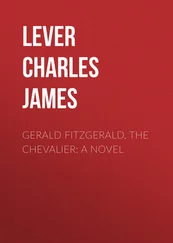Dicker bowed low, and so did I. But I was full of a new idea. If His Majesty liked clocks, he should have clocks – toys, novelties, nonsense – clocks with figures and contrivances. That was when I first conceived the Nicolas Clock. Tancred Dicker and I worked on it for four and a half years. Some of the technical innovations are his, but it was I who got the credit for the whole; and so I became Watchmaker to King Nicolas the Third.
De Kock designed, modelled, and cast the case and the figures. He had talent – almost genius, the genius of the old Dutch Masters who could portray a man, an apple, a monkey, a grape, a bit of linen or a ray of sunshine, exactly as it appeared. He had a photographic hand; and it was this that made him unhappy – he wanted to make his own things, you see – it humiliated him merely to imitate the handiwork of the Lord God Almighty. He ate his heart out in his longing to create something with life of its own, but he never could. It is a sad thing when a man like de Kock becomes at last convinced that au fond he is a mediocrity; it breaks his heart.
Although he was very popular and successful and made a great deal of money, poor Honoré was very unhappy. He had already taken to drinking. Personally, I liked him very much indeed, and had a great admiration for him. He was a craftsman rather than an artist, he could work in any medium. Bronze, ivory, wood, marble, glass, gold, iron – anything and everything. Yet, because he could not reconcile himself to the fact that God did not see fit to give him the divine spark, he was always deep in melancholy. So it may, after all, have been true that poor Honoré de Kock committed suicide in the end. But I am by no means sure of this.
* * *
But where was I? Ay, yes, Dicker and I were talking to Kobalt, that smooth, terribly dangerous nobleman. It was a marvellous thing to hear all those clocks striking at once, and afterwards, when the last chime had died away (there was one vulgar little beast of a clock that was always a little late, and arrived breathless after all the others had done) – it was marvellous, afterwards, to listen to the ticking of all those clocks. The whole Palace was full of it. At night, first of all, you could not sleep; you lay awake, listening, waiting for the concert that almost deafened you every quarter of an hour. There was one silly figurine of a dancing girl. Every hour she performed a little can-can, showing her underclothes, and kicking a tambourine which she held in her right hand. Another contraption – an old French novelty clock – was decorated with a dozen fantastic musicians. When their hour came they all went raving mad, throwing their limbs in all directions, while an extraordinarily strident musical box, concealed in their platform, played a lively jig. And there was a German clock – somehow a typically German clock – upon which there stood, in a painted farmyard, a farmer, his wife, his son, his daughter and a pig. Without fail, twenty-four times a day, the farmer beat his wife, the wife smacked the son, the son kicked his sister, she pulled the pig’s tail, and they all shrieked. A crazy clock! I could see that Dicker and I would have our hands pretty full, because these tricky toy clocks tend to be too sensitive, and sometimes have to be nursed like quarrelsome old invalids. What a business! His Majesty employed a staff of nine highly-skilled men who had nothing to do but wind up his clocks and see that they were set at the correct time. But he would not let them tamper with the works. That is what we had been employed for, at a salary that took even Dicker’s breath away; and Dicker was accustomed to eccentric millionaires to whom money was of no importance.
I am sorry. I am boring you with all this talk of clocks, clocks, clocks. But clocks, you see, are my whole life: I know nothing else. Also, if I am to tell you the really remarkable part of this story, I cannot avoid reference to clocks. His Majesty Nicolas III, in his old age, thought of nothing but his collection. You might have thought that a man, even a king, so old and broken (or, I should say, especially a king) would not like to be reminded of the passing of time. But no, his love of clocks was stronger even than his fear of death.
We were hurried to his presence. You might have thought that we were doctors and he was dying. Oh, dear me, how very old His Majesty was! He was sitting stiffly in a great velvet chair, wrapped from neck to ankles in a wonderful dressing-gown; and even with this, in spite of the fact that the windows were sealed and a fire was blazing, he seemed to be blue with cold. He was dried up, so to speak. There was no moisture left in him. Even his poor old eyes looked dry and he kept blinking as if he was trying to moisten them. The King was suffering from a sort of paralysis which, it was said, was the price he had to pay for certain youthful indiscretions. Also he had arthritis and moved with great difficulty, dragging his feet. I shall never forget how shocked I was when I first saw him. I had had some silly childish idea that a king in real life looks like a king. And there was this little, corpse-like man, old as the hills and weary of the world, quivering to the finger-tips, shuddering and sighing and groaning, swaying his tired old head from side to side like a turtle. Only his beard was magnificent; it was like floss-silk, and covered most of his face and part of his chest.
But when he saw Dicker and me he came to life. He brushed aside the formalities and came straight to business. Oh, that awful voice! It was like a death-rattle, punctuated with groans. From time to time, forgetting his afflictions in his excitement, he started to make a gesture; but his arthritis stopped him with a painful jerk and he let out a moan of pain. He said that we were welcome, very welcome. We could have anything we liked, all we had to do was ask; even for money. We were to live in the Palace, where a workshop had been fitted up. His clocks had been neglected. His beautiful collection of seven hundred rare clocks was going to the devil. We were to go to work at once. First and foremost, there was a job to be done on a unique Swiss clock. It had stopped. It was all the fault of one Fritz Harlin, who had poked his clumsy fingers into the works, pretending to repair it. This was to be put right at once, and he would watch while we worked. It was his only pleasure, that poor old King – watching workmen tinkering with clocks. He has sat and watched me for eight hours on end in my workshop; even taking his meals out of a vessel like a teapot – he could digest nothing but milk – on the spot.
We were conducted to this workshop, which was a workshop out of a dream. Upon the bench stood a silent clock upon which stood a bronze Father Time about two feet high, and a dozen other figures about four inches high. There was a King encrusted with jewels and wearing a golden crown; an enamelled Cardinal in a red robe; a Knight in silver armour; a Merchant carved out of lapis lazuli; a Surgeon with a knife in one hand and a human heart made of a spinel ruby in the other; a Nun of silver and ivory; an Infanta of ivory and red gold; a painted Harlot hung with oddments of jewellery; a Peasant, all sinews, in old ivory and bronze; and an aged Beggar made of bone and studded with sores which were little rubies. The idea was, at the striking of the hour, Time mowed these figures down, one by one, finishing with the King, who came under the scythe on the last stroke of midnight. It was a beautiful piece of workmanship, and we approached it with reverence.
Soon the King came in between two attendants. One of these was an old doctor and the other was a sturdy young man with a nondescript face; they supported him under the arms and led him to another red velvet chair. When Dicker and I began to bow the King said: ‘No, no, no need, no need. Get on with the work.’ Then, trying to make an imperious gesture with his hand, he cried out in agony and groaned with terrible oaths and curses. Dicker and I went to work. This Fritz must have been a fool. I will not try your patience with technical details; but he had not seen one dazzlingly simple thing – one steel wire, less than half an inch long, bent at an angle of about sixty-five degrees, upon which the movement of the main figures, and therefore the movement of the whole mechanism, ultimately depended. Wear and tear and tiredness – for even steel gets tired – had reduced this angle by half a degree. I adjusted it in thirty seconds with a pair of pliers, wound and set the clock, and then – swish went the scythe, down went peasant, soldier, priest and king while the clock was still solemnly chiming (it had little golden bells like church bells). His Majesty uttered a cry of delight, a groan of anguish, half a dozen shocking words and a gracious compliment. We explained that it was nothing; that we would make a new angle-pin of the finest tempered steel, and Time would cut down Men for another hundred years.
Читать дальше











